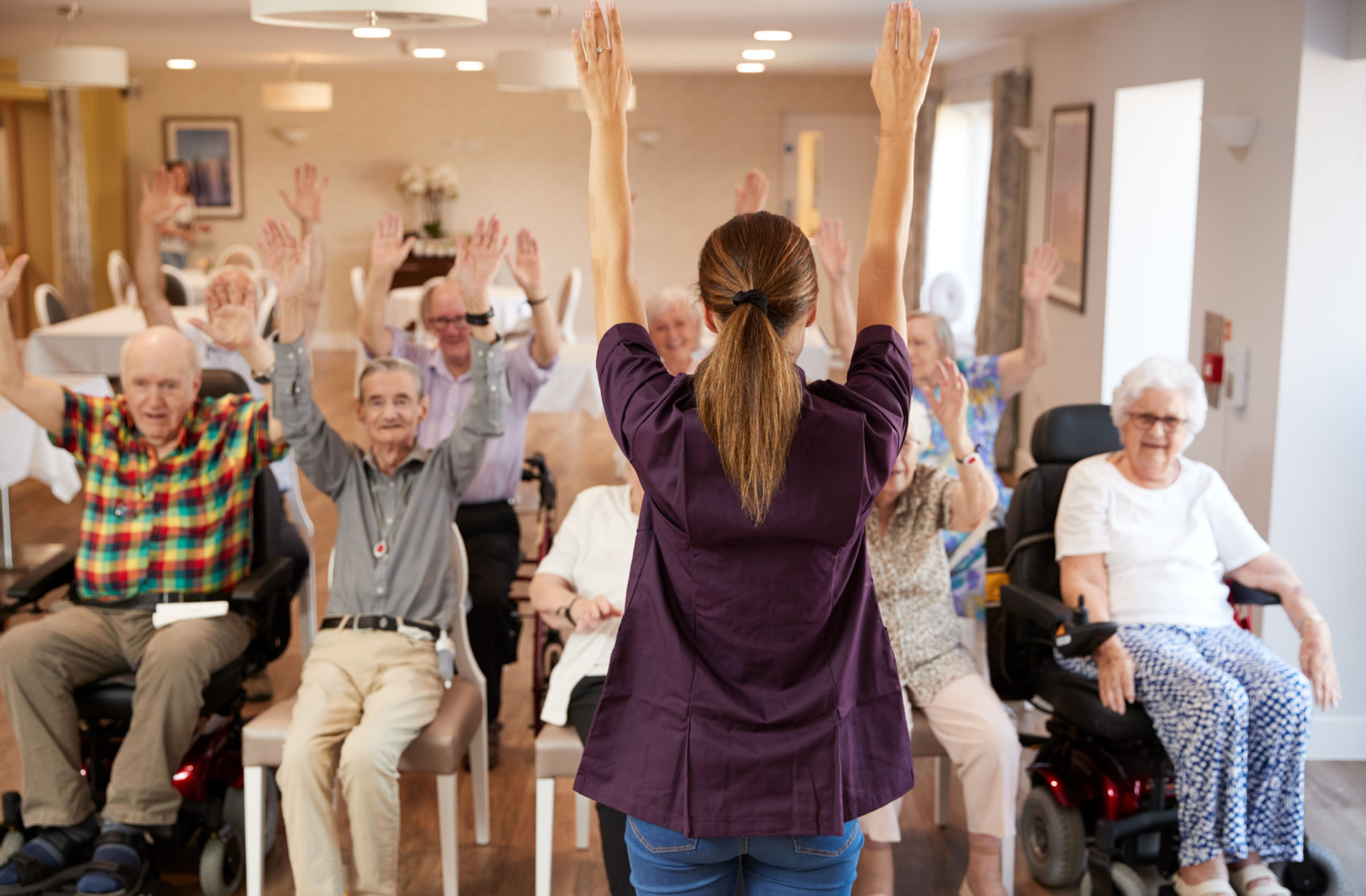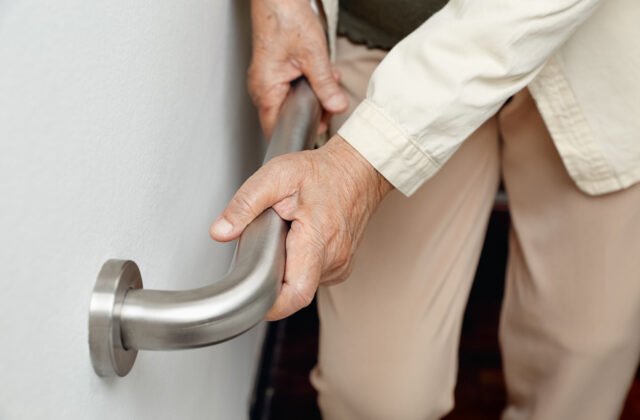Not only can a fall be serious for anyone, but for older adults with dementia, the effects can be catastrophic, including injuries, hospitalization, and a decline in overall health. As dementia progresses, individuals may experience challenges with mobility, coordination, and spatial awareness, increasing their susceptibility to falls.
Ralston Creek Neighbourhood has a variety of appealing floor plans for private older adult apartments that are made to support your loved one’s independence while helping to keep them safe.
Some ways to help prevent falls in elderly with dementia include modifying their home environment, encouraging regular exercise and foot care, encouraging healthy eating, proper medication management, frequent vision checks, cognitive stimulation, and keeping an eye on them whenever possible.
Modifying Their Home Environment
The first step in preventing falls is to make sure that the home environment is safe and comfortable for your loved one. Make sure all areas of the house are well-lit, and remove any tripping hazards. Install grab bars and handrails in the shower, tub, and toilet areas to provide support. Make sure that rugs are firmly secured to the floor, or remove them altogether to prevent tripping.
Inadequate lighting can be a major contributor to falls. Ensure that all areas of the home are well-lit, paying special attention to hallways, staircases, and entryways. Night lights in the bedroom and bathroom can provide guidance during nighttime without causing disorientation.
Regular Exercise Programs
Engaging in regular physical activity can enhance strength, balance, and flexibility, making falls less likely. Tailored exercise programs, such as gentle yoga or swimming, can help maintain and improve the individual’s physical condition. Exercising regularly also helps to strengthen bones and muscles and prevent falls.
Foot Care
Proper foot care is often overlooked but is crucial in preventing falls. Regular foot checkups, well-fitted shoes with non-slip soles, and trimming of toenails can enhance stability and reduce the risk of stumbling.
Encourage a Healthy Diet
A nutritious diet is essential for maintaining good health, and it becomes even more crucial as we age. Make sure that your loved one is getting all the essential nutrients they need, such as calcium, vitamin D, and protein. A healthy diet can help promote strength and improve balance, making falls less likely.
Medication Management
Certain medications may have side effects that contribute to dizziness or unsteadiness. Regularly review medications with healthcare professionals to identify and manage any potential risks. Timely adjustments can minimize the impact of medication on balance and coordination.
Medication management is also critical in preventing falls. Make sure that your loved one’s medications are closely monitored and that they are taking them as prescribed.
Cognitive Stimulation
Engaging individuals with dementia in cognitive activities can help maintain their mental alertness and spatial awareness. Puzzles, memory games, and other stimulating activities can contribute to an overall sense of well-being, reducing the risk of falls associated with confusion or disorientation.
Frequent Vision Checks
Poor vision can significantly contribute to falls. Regular eye examinations can identify and address visual impairments. Keep eyeglass prescriptions up to date and ensure that the lighting in the home is conducive to good vision.
Supervision & Assistance
One of the most effective ways to prevent falls is to keep a close eye on your loved one, especially for those in advanced stages of dementia. Stay involved in their daily activities and routines, and look for signs that they may be experiencing mobility issues or feeling unsteady on their feet.
Having a caregiver or family member present can provide immediate assistance and prevent accidents. Additionally, encourage the use of walking aids, like canes or walkers, to provide extra support. Being aware of their limitations can help you take appropriate action before a fall occurs.
 Supporting Your Loved One in a Senior Care Community
Supporting Your Loved One in a Senior Care Community
Preventing falls in older adults with dementia requires a multifaceted approach that addresses both environmental and personal factors.
By implementing strategies such as careful attention to their environment, exercise, healthy diet, proper medication management, and keeping a watchful eye, we can help create a safer and more supportive living environment, enhancing the quality of life for those living with dementia and reducing the risk of falls and associated complications.
Whether you’re a caregiver or simply looking for ways to keep your loved one safe, these tips can be a great place to start, and with a little extra help from the supportive staff and older adult-friendly accommodations at Ralston Creek Neighbourhood, you can reduce risks and enjoy peace of mind knowing your loved one is healthy and safe. Give us a call today and book a tour.


